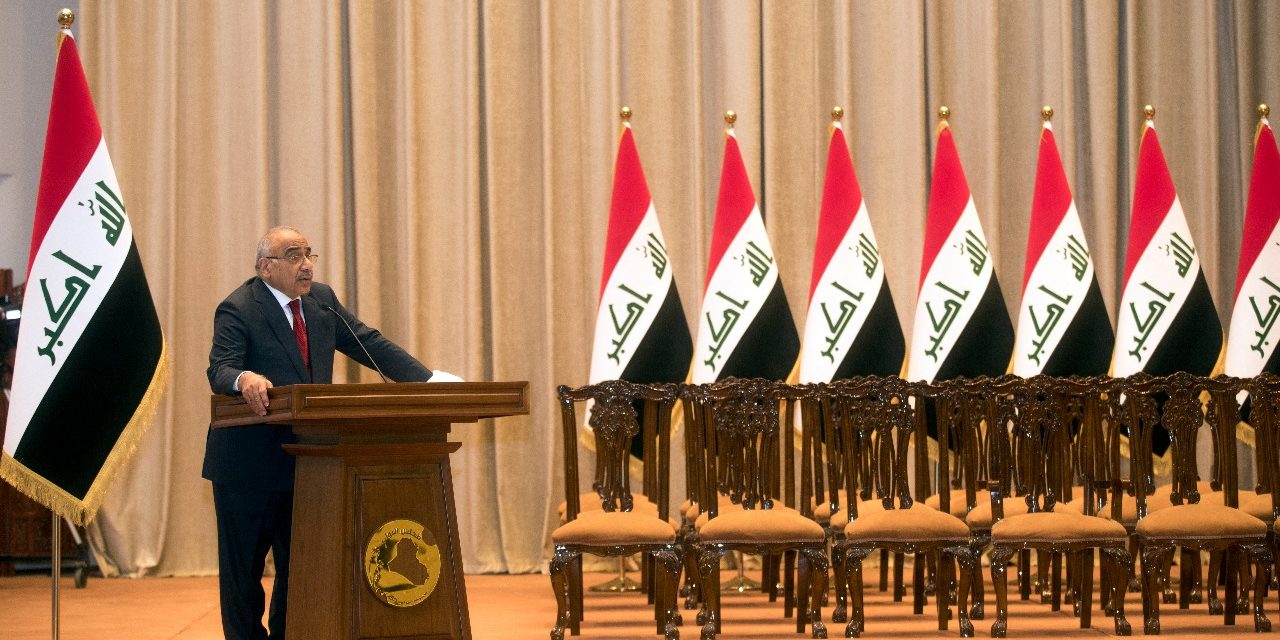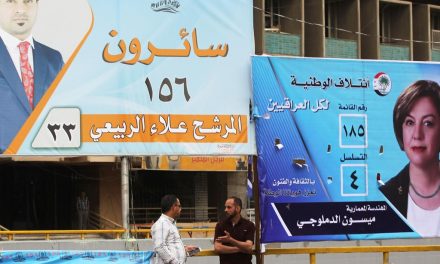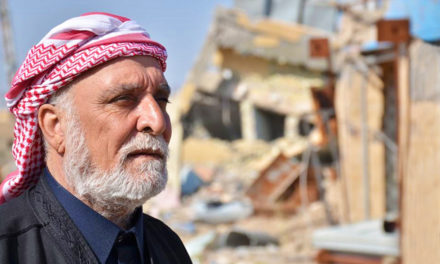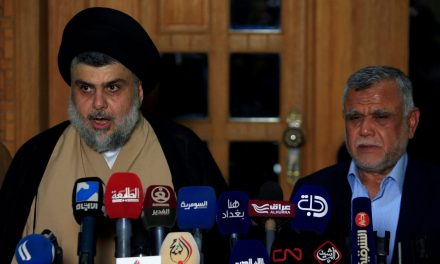With the election of Adil Abdul-Mahdi as prime minister of Iraq, many in the country are wondering what sort of leader he will make. The cabinet he presented to parliament sent a worrying signal of his intent. It contained individuals found guilty of corruption such as Muhammad Al-Ani for Trade and Ahmed Riyadh for Youth and Sports, and Baathists such as Na’em Al-Rubay’i for Telecomunications and Faisal Al-Jarba for Defence. A number of such ministers were not approved by parliament, although Fuad Hussein still made it through. With such a shaky and unsettling first step, it begs the question: what kind of prime minister will Adil Abdul-Mahdi be? Moreover, what will he need to be to succeed?
Beyond the cabinet, Abdul-Mahdi needs to be a leader who inspires change in the country’s psyche and causes a paradigm shift in how Iraqis see the state and their position within it. Despite the election of a new government, currently, both the political elite and ordinary citizens think of the state as a milking cow whose function it is to provide them with resources and riches. The result of this has not only been the transformation of ministries into fiefdoms by politicians, but it also birthed the mass looting of public facilities, which took place after the collapse of the Ba’ath regime and the ubiquitous assumption that university graduates should be automatically employed by the state.
A new vision is required that forges Iraqis into thinking, like U.S. President, John F. Kennedy famously said, “ask not what your country can do for you, ask what you can do for your country”.
For such a vision to see fruition the established bureaucratic system must be overhauled. Currently the state bureaucracy runs in a way designed under the previous authoritarian regime which aimed to stifle the life out of its citizens by creating tediously archaic and degrading processes. And since it was an authoritarian regime, there are many such processes that a citizen has to go through in their normal day to day life. Undoubtedly, this colours the relationship between the individual and the state transforming it into us versus them.
Furthermore, the complexity and overbearing nature of the bureaucratic system means that it presents fertile grounds for corruption, which many civil servants have taken full advantage of. It is a common sentiment that a bribe is required to get any application through and it has spawned its own euphemisms such as a civil servant informing an applicant that “I haven’t had lunch today” when requesting a bribe to do their job. Such interactions are actually what a citizen will experience in their dealings with the state and epitomize the relationship between the two. And it should be the first thing that a leader wishing to inspire hope should tackle.
Moreover, the inability of the country to go beyond the deeply fragmented, and often sectarian, political landscape is largely due to the lack of vision offered by any leader. Absent such a rallying call, and plagued by terrorism, Iraqis have resorted to identity politics. So far Mahdi has been found lacking, but it is still early days.
Decades of suffering, through authoritarian rule, wars, sanctions and terrorism, have hollowed out society’s moral code. Such social norms, which are the fabric of society, have disappeared and with it basic values such as a good work ethic, punctuality, and fairness have gone. Nepotism, favouritism and a lack of meritocracy are now accepted as the norm. Day to day corruption is seen as a form of living. And this explains why, for example, the Army was crippled from within in the lead up to Mosul’s collapse.
After over a decade, many Iraqis have given up on the current generation of politicians. There are glimmers of hope in the groups of motivated young men and women transforming their local neighbourhoods or organising in universities who understand their role in changing the state of the country. However, these examples are too few and disconnected to change the nature of Iraqi society and create a sense of civil responsibility. What Iraq needs is a leader who can imagine a new reality and fan these embers and ignite change in society. Until then, we will have the usual political, fragmented, identity focused, ineffective and incompetent circus that is politics in Iraq.
After all, the elected representatives, who are routinely evicted and replaced by new faces each elections to the same effect, do not come from a vacuum but from the population which has lost the social norms of a civilised society. Decades of brutal dictatorship and sanctions will do that. The problem has been no one has done much to try to reverse it.
Previous prime ministers have promised much but failed to deliver any real vision for the country. Maliki succeeded to defeat the Mahdi Army in Basra and Baghdad. Abadi defeated Daesh (ISIS) and brought peace. Neither succeeded to present a new vision for the country. Will Adil Abdul-Mahdi succeed where his predecessors failed?

Yasser Alaskary
Yasser Alaskary holds an MSc in Global Politics from the University of London. He helped establish the Iraqi Prospect Organisation in 2002 and was a director until 2008. There he provided regular political analysis and also led several grass-roots projects. In addition, he is also a practicing family doctor.










